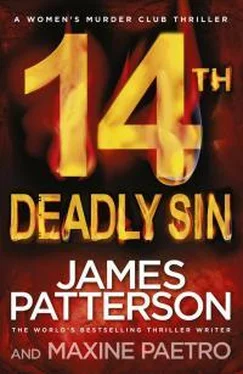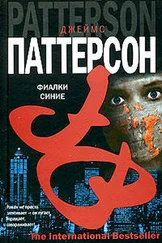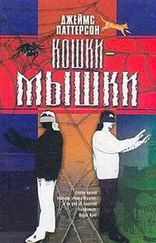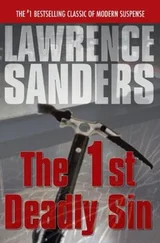Conklin, too, had thoughts that Wicker House and this quadruple murder were related. I heard his footsteps and turned as he came into the kitchen.
He said, “Linds, there’s nothing new upstairs. It was a straight-up execution. I don’t see signs of a robbery. As Clapper said, nothing was tossed.”
“Who killed them?” I asked my partner, but I was really asking myself.
“What do you think, Linds?”
“Let’s say Brady is right, that Calhoun may be one of the Windbreaker cops. Calhoun was pretty excited by those dead Windbreaker-wearing copycats, remember?”
Conklin nodded.
“It was like he was saying, ‘Yahoo. The case is closed.’ And maybe it was because if he could convince us that the Windbreaker case was solved, there’d be no heat on him.”
“Go on,” said my partner.
“OK,” I said, “let’s take it a step further. If Calhoun was involved in the Wicker House robbery, those drugs were worth a lot to someone. And that someone, let’s say it was Kingfisher. What if Kingfisher knew who robbed him?”
“Oh. OK, so you’re saying maybe this wasn’t torture for information,” Conklin said. “Maybe the Calhoun family was the message. ‘Screw with us, this happens.’”
“It’s a leap,” I said, staring at the blood on the kitchen floor.
Conklin said, “It’s a leap. But it makes more sense than anything I’ve heard so far.”
CHAPTER 61
I WAS HOME before dinner, and after showering and changing into sweats, I took Julie onto my lap and fed her strained lamb and peas while listening to Valerie June singing “Pushin’ Against a Stone.” After that, I put Julie in Joe’s arms. I filled Martha’s bowl with a premium kibble I’d been saving for a special occasion, and I told Joe I was cooking dinner.
“I have to do something that I can control and that will make me feel like I’m doing something good.”
“You had me at ‘I’m cooking,’” Joe said.
I laughed, first time that day, and even laughed a little too long and hard. My husband joined in, then gave me a glass of cold orange juice, which is our code for “chill.”
As I chopped vegetables, I told Joe about my shitty day.
“I said I’d go with you to Colma,” he told me.
“Nah, it was better I went with the troops.”
I gave Joe a brief verbal tour of the after-funeral return to the Calhouns’ house of horrors. And while I pounded the veal cutlets with a mallet, I told him my thoughts that Kingfisher had been involved. When the cutlets were so thin they were almost transparent, I felt Joe gently taking the mallet out of my hand.
I laughed again, which was very cathartic, I’ve got to say.
While I sipped my juice, Joe talked about drug kingpins he has known and about Kingfisher in particular, a brutal psychopath who earned his name by annihilating anyone who got in his way.
“He’s both a legend and a myth,” Joe said. “No one knows what he looks like, but it’s said that he gets a piece of all the drug action in the state. Or else.”
“Yeah,” I sighed.
“Not to overworry, Linds, but you think Kingfisher’s gang tortured a cop who may have been involved in the case you’re working.”
“Right, I know,” I said. “I know.”
The oil and the veal were sizzling in the pan, and Joe poured the wine.
“Linds, it concerns me.”
“I’ll be careful. I won’t take any unnecessary chances.”
Joe nodded. He set the security system while I dished up dinner. We ate at the dining table for a change, Martha sitting hopefully between our chairs. When the coffee was brewing, Joe changed the subject and told me he had a lead on “his” case, Claire’s Birthday Murders.
“I’ve got a possible suspect,” Joe said. “His name is Wayne Broward, and he was charged with slashing a neighbor’s car tires. The judge fined him, and Broward responded by threatening to kill the judge, rape his wife, and suffocate their children.”
“Whoa. A seriously crazy person.”
“He was sentenced to the max for threatening a judge, which is a five-thousand-dollar fine and a year in the hoosegow. Broward got out early for good behavior. You ask—when was that? And I answer, just before Claire’s birthday five years ago.”
“Huh,” I said. “Let’s see what else you’ve got.”
While I cleaned up, Joe brought over his laptop. I looked at the files he had found, then tapped into the SFPD database and looked up this madman, Wayne Lawrence Broward, who lived in the Bayview neighborhood at Hollister Avenue and Hawes Street.
Apart from the attack on the neighbors’ tires, Broward had a record for assault on a neighbor who had put his garbage cans too close to Broward’s driveway. And in addition to these attacks, there was a domestic abuse complaint from Broward’s wife.
She had dropped the charges, but her statement made interesting reading.
“Joe, listen to this. Mrs. Broward described her husband as ‘ruined by his crazy-ass schizo mother and has intermittent explosive anger disorder.’”
“And she stuck with him.”
“Yes, she did. If I can find a spare moment tomorrow, I’m going to check up on this guy,” I said.
“Be very careful,” said my dear husband.
CHAPTER 62
WAYNE LAWRENCE BROWARD’S house was a brown, wood-shingled shanty, the third one in from the intersection of Hollister Avenue and Hawes Street. Standing behind a chain-link fence that was hung with a dozen no trespassing signs, the house looked like a seething box of paranoia.
I parked in front of the fence and clipped my badge to my lapel so that the gold metal would glint against the navy-blue twill. I unbuttoned my jacket so that my gun was visible on my hip. Then I pushed open the short chain-link gate.
Even as I put my hand on the gate, I knew I was way off the rails here. Tina Strichler’s murder was being worked by Inspectors Michaels and Wang of our department, but even though they were new, or maybe because of that, I didn’t feel comfortable asking them to look into a fairly baseless hunch conceived by Joe and me.
Still, a hunch was hard to put aside. And I had to check it out. I went through the gate and up the poured-cement path to the front door, upon which was taped another NO TRESPASSING AND THAT MEANS YOU notice.
I pressed the buzzer.
I heard a dog woofing deep inside the house, and a man’s voice said, “OK, Hauser. Let’s see who this damned son of a bitch is.”
There were sounds behind the door, a peephole sliding, a chain coming off a track, a bolt unracking. Given the modest means of residents of this neighborhood, either Wayne Broward was stashing gold bullion at home, or he was an officer in a one-man war.
Or maybe he had stabbed a woman to death on each of the past five May twelfths.
There was more barking, and then the door was pulled open. A brown-haired white man of average height and weight, in a denim shirt and jeans, holding a Winchester rifle, showed himself in the slice of open doorway.
“What the fuck do you want?” he asked.
“I’m Sergeant Lindsay Boxer,” I said, showing him my badge. “I’m looking for Wayne Lawrence Broward.”
The dog, a boxer as it turned out, lunged at the door, and the gent with the rifle used his leg to push the dog back from the doorway.
“I said, ‘What. The fuck. Do you want? ’”
I pushed my badge forward. “I’m the police. Put the gun down.”
The man in the doorway scowled, but he lowered the muzzle.
I took a photo of Tina Strichler from my breast pocket. Her bloody death on a pedestrian crossing in front of about a hundred tourists was still vivid in my mind.
I said, “Do you know this woman?”
Читать дальше












